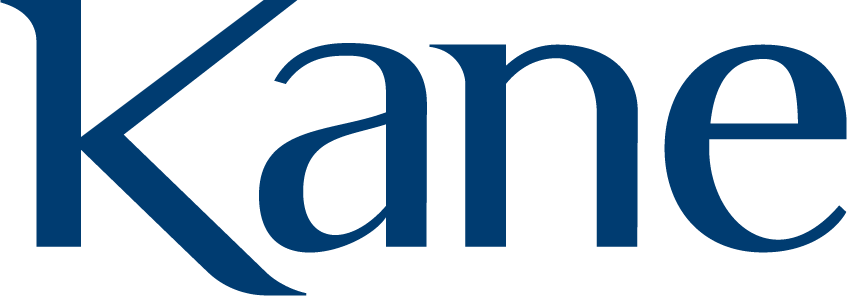Keys to Surviving a Recession
Sheeley is steely in economic downturn
CEO of CKM Inc. shares keys to surviving recession
Carl Sheeley, CEO of CKM, Inc.
The simultaneous crises of the COVID-19 pandemic and the global economic collapse have left many executives cowering in their C-Level bunkers.
Carl Sheeley Jr. is having none of that.
“I feel so comfortable in an economic downturn,” Sheeley says. “I know it seems counterintuitive, but I do.”
What fuels Sheeley’s optimism? He survived the economic quagmire after the attacks on 9-11 in 2001 and the Great Recession of 2008 and 2009, when the American banking system almost collapsed and the U.S. automotive industry needed to be bailed out.
In other words, Sheeley has seen hard times. And they only made him stronger.
“You can complain that rose bushes have thorns. Or you can rejoice that the thorn bushes have roses,” Sheeley says, sounding like a reincarnation of Mark Twain. “It’s been said that sunlight is the best disinfectant. An economic recession is the best sunshine. You can’t hide anything. It’s time for the best to rise to the top.”
In his current role, Sheeley is the CEO of CKM Inc., a “fine” chemical manufacturing company in Racine, Wis.
“The adjective ‘fine’ means value-added or more expensive … analogous to ‘fine’ dining or ‘fine’ jewelry,’” Sheeley says. “The opposite of ‘fine’ chemicals would be commodity chemicals that are relatively inexpensive and made in typically very large volumes.”
Sheeley founded CKM in 2017 and proudly says the firm has consistently grown and is debt-free. The company, which has five employees and is growing at the 14,400-square-foot Racine plant, manufactured and shipped 7.5 metric tons of fine chemicals in 2019.
Sheeley assembled a CKM Scientific Advisory Board of experts to help guide him.
“The ‘inspired chemistry’ in our tagline comes directly from the output of our Scientific Advisory Board. It is the best chemistry development team I have ever seen, and I have seen many,” Sheeley said.
CKM’s customers include pharmaceutical companies, including Merck and Pfizer and firms that sell flavors, fragrances and dietary supplements.
In 2019, CKM expanded by investing in 12,500 square feet of production space and 50 acres of farmland in Franklin, Conn., where Sheeley is growing hemp to be harvested to produce CBD oil.
Sheeley’s optimism about the future stems from his education and his experience.
He earned a bachelor’s degree in chemical engineering at Worcester Polytechnic Institute in Massachusetts and received additional education in business administration at the University of Connecticut in Hartford.
From 1985 to 1992, he held rising positions of authority at Pfizer Inc., the largest branded drug manufacturer in the world.
He became the president at Fontarome Chemical Inc. in St. Francis, Wis., in 2000. Sheeley bought the company in 2004, when it reported less than $1 million in annual revenues. By 2008, the company’s revenues had grown to almost $10 million.
Then came the Great Recession. The company filed for receivership in 2014, despite being profitable. The third-party buyer, Apiscent Labs, brought Sheeley in as a minority partner, but that venture filed for bankruptcy and was purchased by KingChem, a Chinese firm.
Sheeley says the lessons he learned in the Great Recession are proving valuable in driving CKM’s growth through the current turmoil.
For this week’s C-Level, I asked Sheeley to share the top strategies for surviving a steep economic downturn. He says these are considerations only for when a company is facing its “darkest hour.
Here are Sheeley’s “do’s” in such desperation:
Forget the income statement and balance sheet. “Both provide past data. In war, you always look forward,” Sheeley says.
Cash is king. But in challenging times, “cash is God.” Sheeley says, “Prepare a 13-week cash flow statement. Be maniacal about accuracy. Go deep or go home. Update and review every Monday morning.”
Cut deep and cut once. “List every actual expense. For every expense, ask, ‘What happens if we terminate this expense? Can we live without it?’” Sheeley says.
Identify your “foxhole” team. “They are not necessarily your direct reports. In your gut, you know who they are. Work with them on the plan. Violate the corporate hierarchy. ASAP,” Sheeley says.
Like the Spock character in the “The Wrath of Kahn” movie said, “The needs of the many outweigh the needs of the few.” “List every full- and part-time employee. Ask, what happens if we terminate this employee? Can we live without this employee? Identify employees to be terminated and those to be furloughed,” Sheeley says.
Stop all company retirement plan contributions. “Just do it and don’t feel bad about it,” Sheeley says.
Find the right banker. “This is critical. All bankers were not created equal. You know what they call a doctor who barely passed medical school with a ‘D?’ Doctor,” Sheeley says.

